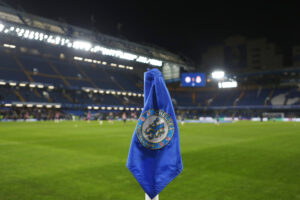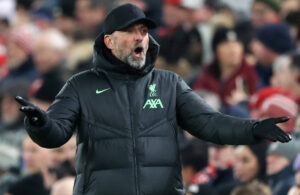This week, José Mourinho announced the death-knell of one of English football’s longest traditions – one-club domination. He was quoted in The Sun as saying, “There is no more dominancy. And you will see that for the next ten or 20 years.”
Many Manchester United fans assumed that he was only referring to the end of their own club’s recent golden age, but Mourinho was adamant that he was talking about all English clubs and maintained that in the future it would be impossible for anyone English to achieve the kind of absolute pre-eminence that Manchester United enjoyed under Sir Alex Ferguson. But is he right? Is it really impossible for any one English club to dominate in the future, or will one club yet again rule English football for a decade or more?
There have been three great eras of one-club domination in the 150 years or so of English league football. The first was that of Arsenal in the 1930s, first under the imperious Herbert Chapman and then, after Chapman’s tragically early death at the age of 55, under his successor, George Allison.
Arsenal won five titles, including a hat-trick of titles between 1933 and 1935, and two FA Cups. Of course, there was no European Cup at that time, but if there had been Arsenal would undoubtedly have been favourites to win it. In any case, many Arsenal fans maintain that there was no point winning the European Cup when they had already “won the World Cup”, citing the fact that no fewer than seven Arsenal players appeared for the England side that beat the reigning world champions, Italy, in the infamous “Battle of Highbury” in November 1934; an extraordinarily violent clash that England/Arsenal won to become unofficial world champions.
The next period of one-club domination of England football came nearly forty years later, when Liverpool rose to become masters of all that they surveyed. Bill Shankly had revived the club after relegation in the 1950s, going on to win two titles in the 1960s and a third in 1973, but it was only really in the mid-1970s, when Bob Paisley replaced Shankly, that Liverpool began to dominate not only English football but European football.
It is scant consolation to Scousers who are appalled that Liverpool have now gone longer without winning the English title than Manchester United did in their own fallow period, but the Reds completely bossed English football between 1975 and 1990, winning 10 league titles—more than half of the club’s total haul of 18 English championships—between 1975-76 and 1989-90. And unlike Arsenal, they translated their domestic supremacy into European dominance, winning four European Cups between 1977 and 1984, including two in a row in 1977 and 1978.
Finally, when Liverpool slipped off their “perch”, as Sir Alex Ferguson famously described it, Manchester United went on a title-winning rampage of their own, at least in England. Their total of 13 titles in 21 seasons was hugely impressive as the club finally emerged from the gigantic shadow cast by Sir Matt Busby and his succession of great teams to finally create a Manchester United for the modern era, one that quickly became probably the most popular English club in the world, let alone in England.
There are other clubs who will maintain that they, too, once enjoyed dominance of the English game, notably Huddersfield, who won their own hat-trick of titles (again, under the mighty Chapman) between 1924 and 1926, and Wolves, who won three titles in six seasons in the 1950s, and, perhaps most persuasively, Chelsea, who won successive titles in 2005 and 2006, before claiming two more titles in 2010 and 2015.
For all the undoubted brilliance of those sides, however, none of them achieved a period of real dominance—one that lasted at least a decade—and it is perhaps Chelsea’s failure to achieve total domination of the England game that is the most instructive when it comes to examining just how difficult it is to “rule” English football.
Of course, this season Chelsea may well make it a fifth title in 12 years, but even if they do they will not have dominated English football in the way that their illustrious forebears did. And that is despite the colossal cash injection by Roman Abramovich since he bought the club in 2003, which made the prospect of a period of “Blue domination” of English football even possible.
First, Manchester United, under Sir Alex Ferguson and with a young Cristiano Ronaldo to the fore, rose up again to challenge them, winning the club’s second hat-trick of league titles between 2007 and 2009.
Then, even more importantly, Manchester City, for so long the second club in Manchester and the nowhere club in English football as a whole, “did a Chelsea” when they were acquired in 2008 by Sheikh Mansour and his UAE billions, allowing them to compete at the top of English football for the first time since the late 1960s.
If Abramovich and Chelsea found it difficult to dominate, however, Mansour and Manchester City have found it virtually impossible, winning just the two English top-flight titles and effectively failing in the Champions League, with only last season’s limp semi-final defeat to Real Madrid to show for all their ambition and expenditure.
This season, of course, Chelsea have threatened to run away from the rest in the title race, at least until Spurs defeated them recently at White Hart Lane to bring them back into view for the chasing pack. Nevertheless, the general theme has been the emergence of the so-called “top six”. The three big London clubs, the two Manchester clubs and Liverpool have elevated themselves above the rest to the extent that, at the start of the weekend, seventh-placed Everton were closer in points to the bottom club, Swansea, than they are to the leaders, Chelsea.
Perhaps this is what lies behind Mourinho’s statement. Several English clubs enjoy the unprecedented riches of the current TV deal to challenge at the top of the game. There may be another, even more important reason why Mourinho is right, and that is the decline in the longevity of managers at the biggest English clubs.
Mourinho himself is perhaps the perfect illustration of this point, as so far in his managerial career he has never stayed at one club for any longer than the three and a bit seasons that he spent at Chelsea the first time around. Similarly, Pep Guardiola has only spent four seasons in charge of Barcelona and three at Bayern Munich, and already this season he has talked, perhaps wistfully, about “retirement”, defiantly maintaining that he will certainly not be managing when he is 60.
Indeed, of this season’s new (or newish) managers vying for top place in the Premier League, it is arguably only Jürgen Klopp who has demonstrated some genuine “staying power” at his previous clubs, spending seven years in charge of both Mainz and Borussia Dortmund.
This trend of short-termism among modern managers certainly contrasts sharply with the long-term view adopted by most of the greatest managers in English football, including those who oversaw the genuine periods of domination enjoyed by Arsenal, Manchester United and Liverpool.
Herbert Chapman only stopped managing Arsenal because he died, and his successor, Allison, went on to manage the club for 13 years. Arsène Wenger has been at the club since 1996 Similarly, Shankly laid the groundwork for Liverpool’s eventual emergence as England’s top team during his 15 years in charge from 1959 onwards, and his successor, Paisley, almost lasted a decade before retiring in 1983. Finally, and perhaps most famously, Sir Alex Ferguson was in charge at Old Trafford for a truly phenomenal 27 years.
As has been said frequently since Ferguson’s retirement four years ago, it is almost impossible to imagine any future manager of a top English club staying in one position for so long. There are many reasons for that, especially the increased workload that managers now have in comparison with their predecessors. But perhaps the single most important factor in the gradual reduction in the length of top managers’ tenure in England is the simplest: money.
The fact is that modern managers, especially those in charge of the biggest clubs, earn infinitely more money than their counterparts in days gone by. The earnings of managers in the past, even the very best of them, were miniscule in comparison with those of the top managers today. With increased workload has come an extraordinary increase in remuneration, but as a result managers today quite simply do not need to work for as long as they did in the past.
It is for that reason, as much as any other, that José Mourinho may be right and the age of one-club domination of English football may be over, because without that one great man at the top to lead a club for many years, if not decades, it is correspondingly harder for any club to rule the roost for a prolonged period.
Main Photo






